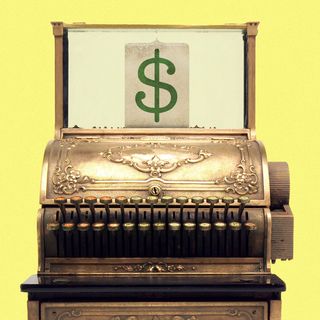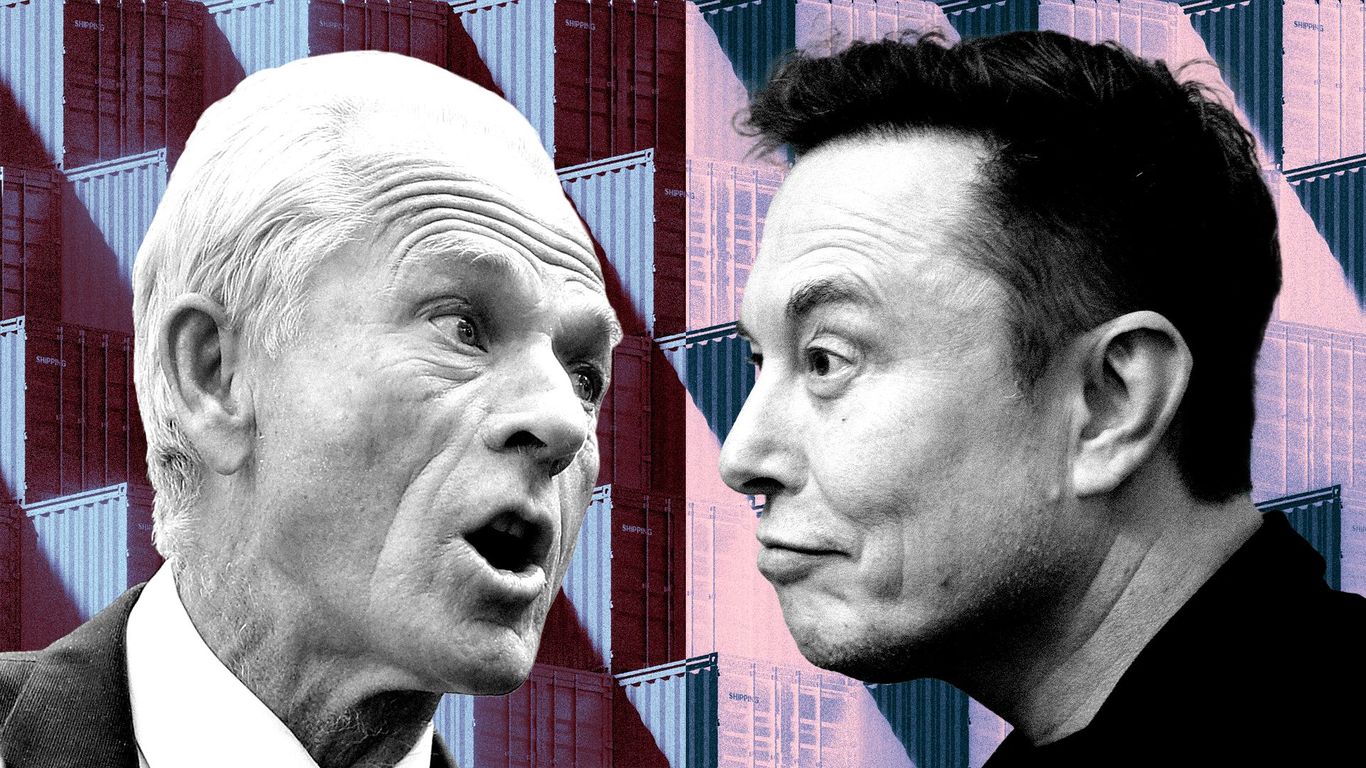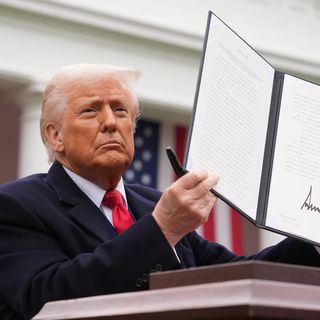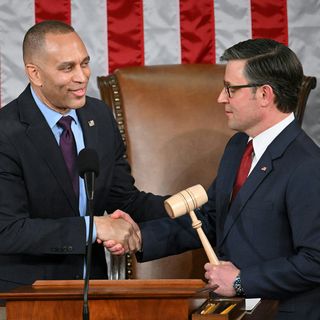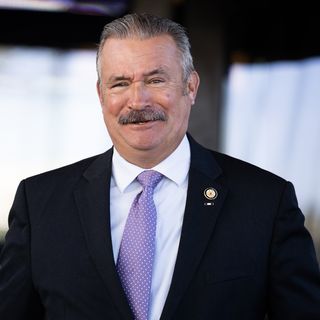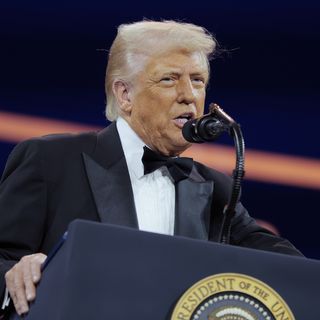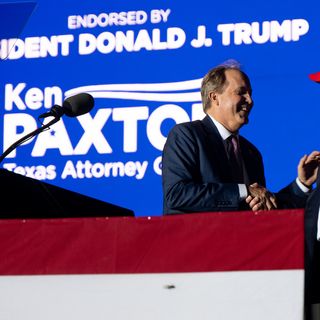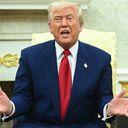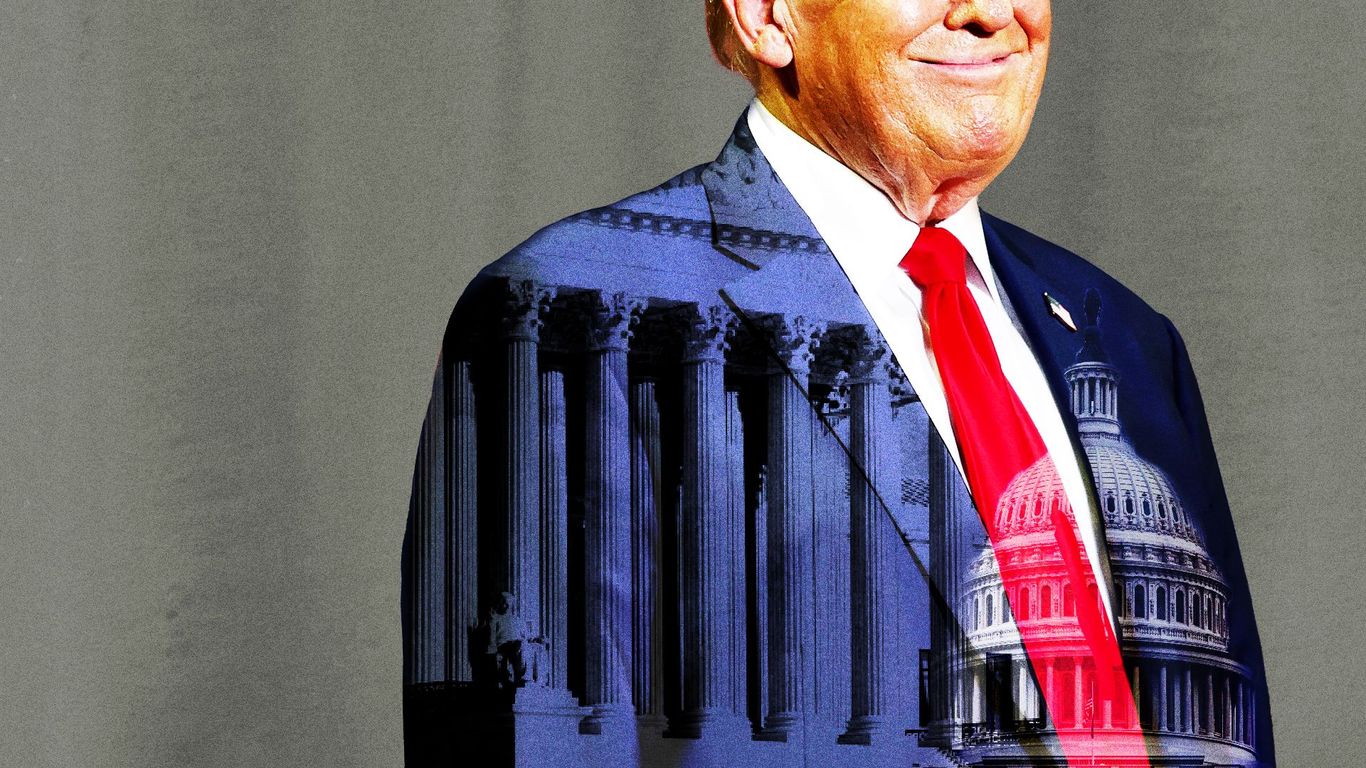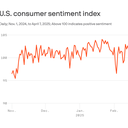Behind the Curtain: How Trump reordered the world in 80 days
President Trump has done more unprecedented, lasting things in 80 days than many presidents do in a four-year term.
Why it matters: There are 1,382 days to go in this term.
So let's step back and appraise the indisputable acts of power that have changed America in Trump's first two months and three weeks, as synthesized by Axios' Zachary Basu:
1. A new global economy.
- Trump has declared an all-out war on globalism, detonating every one of America's trading relationships — allies and adversaries alike — by imposing the largest tariffs in nearly a century.
- Trump's push for a manufacturing renaissance has helped secure at least $1.6 trillion in U.S. investment pledges. But his tariff rollout melted markets globally and dramatically raised the threat of a recession.
- The renewed trade war with China carries the biggest potential blast radius, with the world's two largest economies engaged in a tit-for-tat escalation that could snarl global supply chains.
2. A new world order.
- The rules-based system forged after World War II is dead: Trump has withdrawn from multilateral institutions, threatened to expand U.S. territory to Greenland, Gaza and Panama, and alienated America's closest allies.
- Canada, stewing in nationalist fervor from Trump's tariffs and his "51st state" mockery, has declared our close relationship "over" and is looking to other allies for security and economic cooperation.
- Europe is in the midst of its own radical transformation, singed and stunned by Trump's tariffs, constant insults, undermining NATO and siding with Russia over Ukraine.
- Years of U.S. strategy designed to isolate China is up in flames, with Asian allies turning to Beijing for trade refuge and Taiwan fearing it could meet the same fate as Ukraine.
3. A vast expansion of executive power.
- Trump is testing — and in some cases, obliterating — legal boundaries around presidential authority, including by punishing his political enemies and major law firms caught in the crossfire.
- Courts are grappling with hundreds of lawsuits challenging Trump's ability to override Congress on spending, immigration and federal employment — and facing intense pressure from his base over "traitorous" rulings. Attorney General Pam Bondi said this weekend on "Fox News Sunday" that since the inauguration, "we've had over 170 lawsuits filed against us. That should be the constitutional crisis right there. Fifty injunctions — they're popping up every single day."
- Trump has installed loyalists atop the Justice Department and FBI — declaring himself the country's "chief law enforcement officer" — and purged career officials and lawyers viewed as insufficiently MAGA.
4. A shrinking federal government.
- Elon Musk's DOGE cost-slashing has resulted in mass layoffs and the dismantling of whole agencies, including USAID and the Consumer Financial Protection Bureau.
- An estimated 60,000 federal workers have been fired in a broad effort to reduce the size of government, with deeper cuts still coming. Thousands have been reinstated, either through court orders or because officials moved impulsively.
- Cuts to Social Security's phone services are threatening disruptions for millions of seniors.
5. A sealed border.
- Illegal border crossings have plummeted to the lowest levels in decades, a testament to Trump's aggressive approach to curbing immigration through any means possible.
- That includes the unprecedented invocation of the Alien Enemies Act of 1798, which Trump used to deport hundreds of alleged Venezuelan gang members to a notorious mass prison in El Salvador.
- Trump also has taken aim at legal immigrants, revoking visas for college students involved in pro-Palestinian activism on the grounds that their presence could have "potentially serious adverse foreign policy consequences."
- In both cases, lack of due process has deeply alarmed immigration activists and civil libertarians — while Trump's broader crackdown has had a chilling effect on foreign travel to the U.S.
🔮 Coming for subscribers: Axios AM Executive Briefing — with expertise from Axios tech policy reporters Maria Curi and Ashley Gold — is about to publish a subscriber-only special report on the collision of AI and Washington. Subscribe here.


